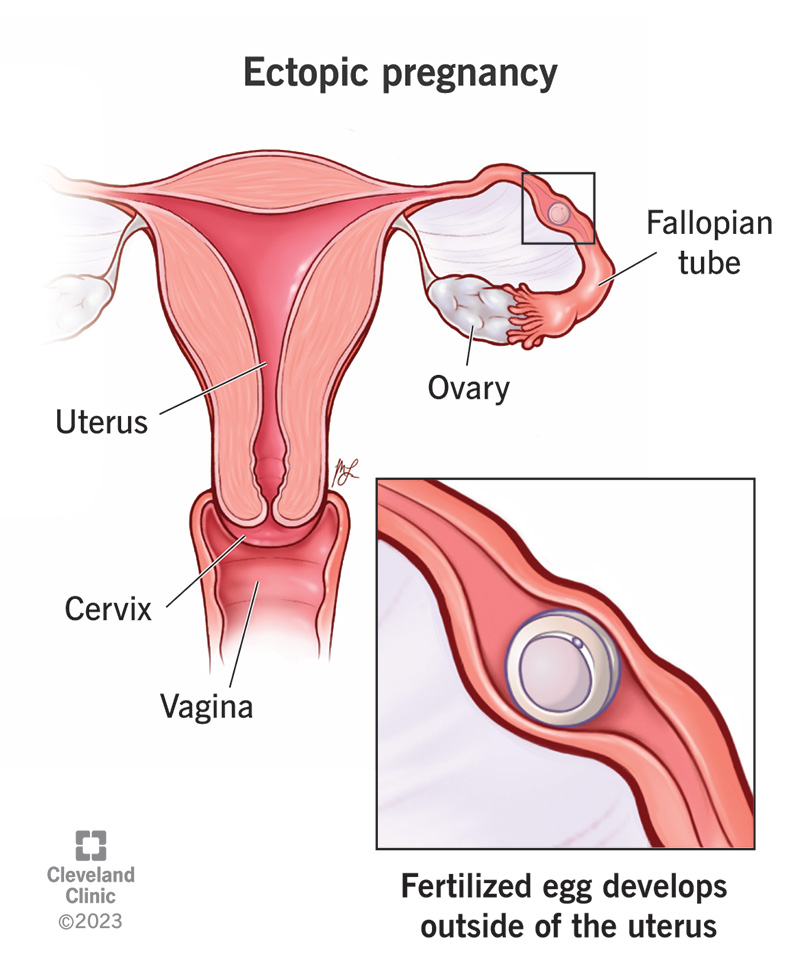Ectopic Pregnancy: A Comprehensive Guide to Symptoms and Management
Introduction
An ectopic pregnancy occurs when a fertilized egg implants outside the uterus. This is a serious medical condition that can be life-threatening if not treated promptly. The symptoms of an ectopic pregnancy can vary depending on the location of the implantation, but some common signs include:
- Abdominal pain: This is the most common symptom of an ectopic pregnancy. The pain may be sharp or dull and may come and go. It is often worse on one side of the abdomen.
- Vaginal bleeding: This is another common symptom of an ectopic pregnancy. The bleeding may be light or heavy and may be accompanied by cramping.
- Nausea and vomiting: These are also common symptoms of an ectopic pregnancy. They may be worse in the morning and may be accompanied by diarrhea.
- Fatigue: This is a common symptom of pregnancy in general, but it may be more severe in women with an ectopic pregnancy.
- Dizziness or fainting: These are signs of low blood pressure, which can be a sign of an ectopic pregnancy.
Risk Factors
There are a number of risk factors for ectopic pregnancy, including:
- Previous ectopic pregnancy: Women who have had an ectopic pregnancy are at an increased risk of having another one.
- Pelvic inflammatory disease (PID): PID is an infection of the uterus, fallopian tubes, and ovaries. It can damage the fallopian tubes and make it more difficult for a fertilized egg to implant in the uterus.
- Endometriosis: Endometriosis is a condition in which tissue from the lining of the uterus grows outside the uterus. This can block the fallopian tubes and make it more difficult for a fertilized egg to implant in the uterus.
- Use of an intrauterine device (IUD): IUDs are a type of birth control that is inserted into the uterus. They can sometimes cause the fallopian tubes to become blocked, which can lead to an ectopic pregnancy.
- Smoking: Smoking can damage the fallopian tubes and make it more difficult for a fertilized egg to implant in the uterus.
Diagnosis
An ectopic pregnancy is diagnosed based on a combination of symptoms, a physical examination, and ultrasound. A transvaginal ultrasound is the most accurate way to diagnose an ectopic pregnancy. This type of ultrasound uses a probe that is inserted into the vagina to get a clear view of the uterus and fallopian tubes.
Treatment
The treatment for an ectopic pregnancy depends on the location of the implantation and the severity of the symptoms. In some cases, medication can be used to stop the growth of the embryo and allow it to be absorbed by the body. In other cases, surgery is necessary to remove the embryo and the affected fallopian tube.
Complications
Ectopic pregnancies can lead to a number of complications, including:
- Rupture of the fallopian tube: This is a serious complication that can occur if the ectopic pregnancy grows too large. It can cause severe bleeding and pain and can be life-threatening.
- Infection: An ectopic pregnancy can also lead to infection of the uterus, fallopian tubes, or ovaries. This can cause fever, chills, and pain.
- Infertility: An ectopic pregnancy can damage the fallopian tubes and make it difficult or impossible to get pregnant in the future.
Prevention
There is no sure way to prevent an ectopic pregnancy, but there are a number of things you can do to reduce your risk, including:
- Using contraception: Contraception can help to prevent pregnancy, which is the best way to prevent an ectopic pregnancy.
- Getting treated for PID: If you have PID, it is important to get treated promptly to reduce your risk of developing an ectopic pregnancy.
- Quitting smoking: Smoking can damage the fallopian tubes and make it more difficult for a fertilized egg to implant in the uterus.
Conclusion
Ectopic pregnancy is a serious medical condition that can be life-threatening if not treated promptly. The symptoms of an ectopic pregnancy can vary depending on the location of the implantation, but some common signs include abdominal pain, vaginal bleeding, nausea and vomiting, fatigue, and dizziness or fainting. If you experience any of these symptoms, it is important to see your doctor right away.
